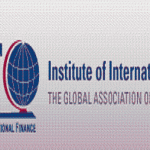By FXEmpire.com

The Debt Crisis Crashes Through the Firewall
The Institute of International Finance (IIF), which represents 450 banks and finance houses, said the ?eurozone must expand the EUR800bn (?660bn) European Stability Mechanism (ESM) created to fund ?bailouts of member countries. These are the businessman and representatives that negotiated with ?Greece on behalf of the bond holders.?
Eurozone leaders risk reigniting the sovereign debt crisis unless they agree more funds for the so-??called “firewall” designed to calm bond markets, the world’s top banking group warned last night.?
After hoping and praying that last months efforts would quiet the markets and calm other governments, ?the EU agreed to establish a much larger fund, but in the never ending european financial crisis, the ?problems just do not go away.
Such an expansion is the only way to unlock extra money from the International Monetary Fund and ?finally remove the possibility of a disorderly break-up of the eurozone, the IIF’s managing director, ?Charles Dallara, said in an open letter addressed to IMF and World Bank leaders.?
The IMF and World Bank are meeting in Washington next week, and Mr. Dallara’s letter is designed to ?put pressure on the finance ministers and central bankers to do more to stabilize the banking system ?and pull the eurozone out of recession. He also called for core eurozone nations to ease the pressure ?on peripheral nations such as Greece to slim down government; for fear that an “austerity overload” ?could doom the continent to a prolonged recession.?
The IMF and World Bank meetings are expected to focus on calls for an expansion of the IMF’s lending ?capacity. It wants an extra $600bn in funding from member nations, but the US and others say the ?Europeans must first do more to limit the risks to the financial system.?
Mr. Dallara, who negotiated on behalf of private bondholders in talks about the Greek debt ?restructuring, said it was “disappointing” that eurozone states, led by Germany, had limited the ESM to ??EUR800bn, of which EUR300bn has already been committed.?
The 17 single currency governments have agreed to deliver EUR500bn (?418bn) in bailout funds in the ?hope of erecting a firewall strong enough to contain the sovereign debt crisis, placate the markets and ?encourage non-eurozone International Monetary Fund (IMF) members to commit a similar sum to ?emergency reserves.?
But the eurozone finance ministers, meeting in Copenhagen amid calls to erect the “mother of all ?firewalls”, ditched explicit earlier proposals to keep a further EUR240bn in reserve for the next two years.?
The deal agreed conformed to German prescriptions for a minimalist bailout, a recipe the European ?commission described in advance as inadequate to the challenges confronting the euro.?
Ministers endeavored to impress the bond markets, the Americans and the Chinese, trumpeting the ?agreement as worth “more than a trillion dollars” in the hope this will press the big IMF donors into ?doubling the monetary fund’s reserves to a similar figure next month.?
A statement from the euro group said: “Altogether, the euro area is mobilizing an overall firewall of ?approximately EUR800bn – more than $1tn.”? But many analysts have said that only a bailout fund approaching twice the size of that agreed on ?Friday would be sufficient to reassure investors.?After a major flare-up in the second half of 2011, the debt crisis has abated somewhat in the past few ?months. But analysts warn that the crisis is liable to erupt again, especially if Europe falls back into a ?recession that would worsen countries’ debt loads.?
But that figure included EUR100bn in bilateral loans to Greece from EU countries in 2010, as well as EUR200bn ?to Ireland, Portugal and Greece from the temporary eurozone bailout fund, which closes next year, ?although those three program will run their course until 2015.?
Originally posted here



